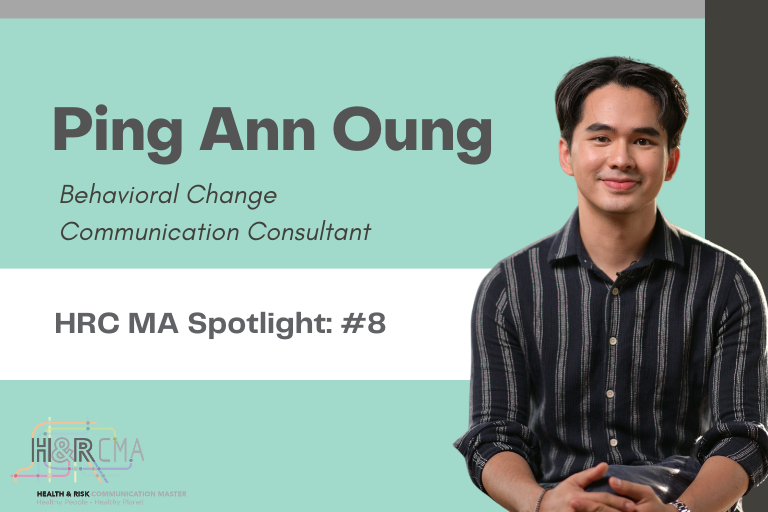Q: What do you currently do?
I'm a behavioral change communication consultant. I would call myself more of a storyteller and a behavioral change communicator. Many of my projects center around two specific themes: healthcare and women empowerment.
Q: Can you expand a little more on the type of projects you do as a behavioral change communication consultant?
Currently, I have just finished a project with the World Bank Group. I did a one-year long project with them on getting stories from 54 women in Cambodia and Vietnam. I travel to small provinces in the two countries trying to understand how women who own small, medium, and micro businesses are facing challenges when it comes to trying to expand their business. For this project, I traveled solo with one bag containing all my camera equipment to conduct the recruitment and interviews. I created a photo booklet that tells all the stories, and those stories were used by the World Bank Group as qualitative and multimedia evidence-based research to support policies to empower young female entrepreneurs around Cambodia and Vietnam. That is a project I have worked on that centers around women empowerment.
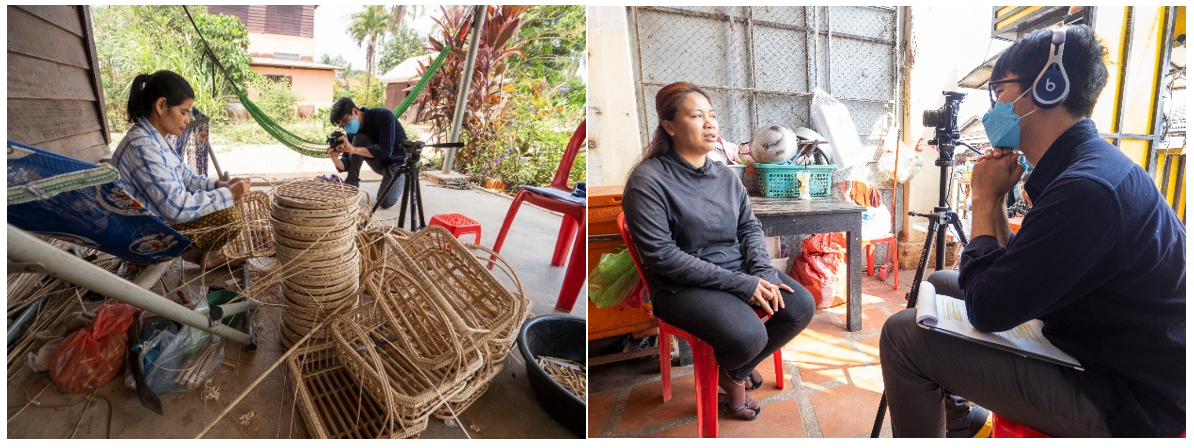
For healthcare projects, I led a national breast cancer project last year that focused on changing the behavior of Cambodian women to do early detection. During my time in school, many of my papers for classes were on how we can improve the early detection rate in Cambodia, as there are many cultural sensitivities and not many safe spaces for topics like that. For this project, I put what I have written into practice. I led a campaign where we had about 3,000 plus women come for a health checkup and more than 400 women were detected with early sign of breast cancer that required further analysis. I designed the messaging using the health belief model and then created digital campaigns partnering with influencers to deliver the message.
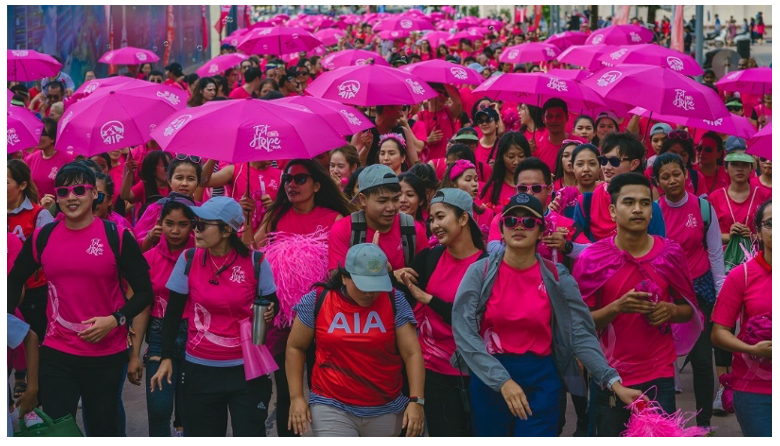
I'm also working with an NGO called TPO, which is part of a big research. When I was in the U.S., I did a lot of qualitative research looking at the medical records of mentally disabled patients who are being chained or locked by their own families. It's a big issue in Cambodia but not talked about enough. When I came back, I decided to approach TPO. We traveled to 8 provinces together and studied about 14 cases of mentally disabled patients who were being chained or locked by their families. Currently, I'm working on a big plan for behavioral change communication campaign on how to prevent and minimize parents from blocking or chaining their children and raising funds for them as well.
Q: How did you get to where you are currently?
I did my master’s degree program through a Fulbright scholarship. It was during COVID and one of the big things I had to do was force myself to do some reflection and map out my career plans. Even before graduation, I started talking to a lot of my former employers and various organizations about what I'm currently working on at school and how we can expand those ideas. I pitched those ideas to different organizations and then they got picked up and then we started working on those projects.
I think the most important idea is that whatever you work on at school, make sure you make a consistent effort toward that topic or interest. Never be afraid to go out there and pitch your idea. Sometimes your job may come from just going out there and speaking to people who are also advocating on the same issue but have the budget, the platform, or the power, and you have the great idea to bring it to life.
Q: How has the program helped you?
The way that this program is designed really tailors to people who care about healthcare and want to use communication as a means to change life. There are three things that I enjoyed most about the program. One is the curriculum. I believe that the curriculum is designed to give you complementary skills. For example, I took persuasion which I think is one of the most important skills in life, no matter what you do. How do we persuade people to do certain things? Diving into the emotions and theories really helped me a lot. The classes helped me understand that you don't just simply design a message; you have to go in-depth or do formative research to design a great message that makes people feel they can relate to it. Everything combined with the curriculum gave me a full understanding of what I should do.
Secondly, I really enjoyed my time with all my professors. They genuinely care about the direction I was heading towards. Even with the added stress of COVID restrictions, they really helped me. When I went to Professor Ashley about my research, she immediately helped, connected me with relevant resources and was very supportive. If you pitch a concept or idea to them, they’ll respond positively and help you find a platform.
The last thing I think is great about the HRC MA is the class size. The classes are small, and because the program is quite niche, it gives you a lot of time to voice your opinions. With smaller classes, we were able to dive deep into certain topics and have quality time with our teachers. The classes are designed to also respect your opinion and really focus on quality over quantity.
To add to this, In Cambodia, I believe we have fewer than 10 people who major in health communication, and we are a big country with a lot of problems. For me to be able to learn all of this, I'm truly grateful. I feel I now have a neat set of skills that can be used in a country that doesn’t have an understanding of those skills. In a sense, there is some sort of a fulfillment in bridging the gap there.
Q: Why did you choose the HRCMA program?
I'm from Cambodia and we don’t have specific majors such as health and risk communication. Before I applied for my Fulbright Scholarship, a lot of my work evolved around advocating health, and it was mostly on non-communicable diseases. I started feeling like I wasn’t enough in terms of wanting to do bigger things. I decided I needed to take a break and learn. I started searching for different programs by literally typing the words “health / communication / multimedia master’s degree program”. I'm not a doctor but I love the healthcare field and I wanted to tell people how they can prevent things like non-communicable diseases and improve their health. So, when I found out about MSU I applied because the program was a fit to my interest.
The program, to me, was so fresh, the curriculum was so tailored, the campus was so big, and I felt that was where I wanted to go. I felt if I did not go out there and take that degree, my mind wouldn't be open enough to see different things. What I did before the program was based on what I thought was right, but the HRC program has taught me everything should be based on formative research,
Q: Can you share one project you have worked on in your career? And why are you choosing to highlight this particular project?
I would love to highlight the project I'm working on currently. I'm working with the Transcultural Psychosocial Organization (TPO) on a project called Operation Unchain. For this project, the TPO team travels around Cambodia to areas where there are few medical institutions. They would find mentally disabled patients who got chained or locked up by family, some enduring this for as long as 30 years. The conditions are unimaginable—being confined to a small space, eating and defecating there, with no way to get out.
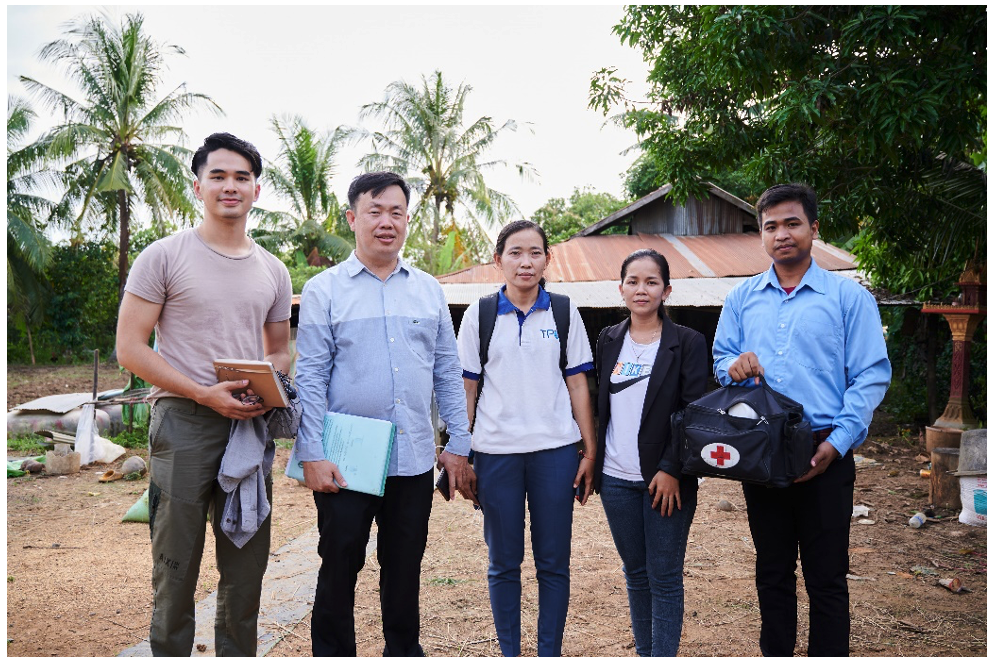
I started working on this project back in 2019, where I did a video communication material for them. When I got to the U.S., I contacted them, and we looked through the medical report of the patients trying to understand why this was happening. After I came back, I continued the project by traveling with them. I traveled to 8 provinces with them to see the patients and encountered patients as young as 12 years old, some chained for 30 years, and others confined to tiny rooms no larger than a bathroom. This has been a project I have been working on for a long time, really trying to find a way on how we can break that cycle. Challenges include cultural sensitivity, families not having enough funding, not knowing where to find resources (like hospitals) and more. Currently, we are looking at ways on how we can prevent chaining in the first place. We want to connect parents to proper medical treatment, and if they can't afford it, we are exploring ways to connect them to a free facility. We are really studying point by point and trying to dive deep into how we can change that.
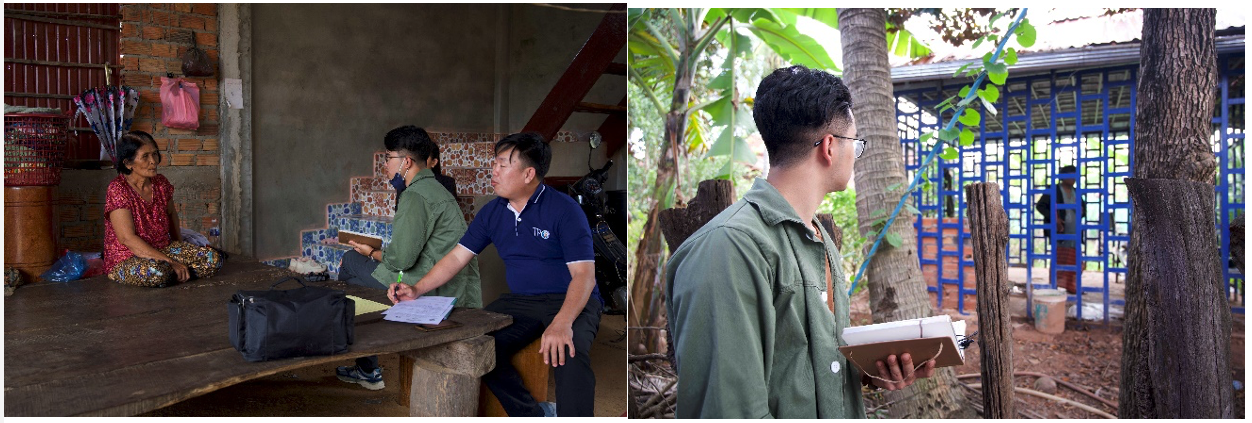
That is the project I would like to highlight. The overall goal is to change the behavior of the parents from locking their kids and then connect them to the facility that they need. We need to give them a cue to action to prompt that behavioral change.
Q: How has your view on how communication evolved since graduating from the program?
Before I went on the program, a lot of health communication we did was not very creative. Not creative in the sense where are always very direct and blend. It was always through leaflets, TV, and other traditional media. For example, if we want kids to get vaccinated, we would just create a PSA directly telling people to take their kids to get vaccinated. The message is not designed to be tailored to different groups. Verus now, I would think if parents were living far away and cannot access healthcare easily, how should we design this vaccination message compared to a family who is already privileged but not aware of vaccination.
After the program, one big thing I learned is to really put persuasion, storytelling, and message design principles into everything that I do. I also think about how we can distribute messages creatively nowadays, given the ever-evolving digital usage. A lot has changed, especially in how I create my messages—message-wise, visually, sound-wise, and script-wise. How does it fit the people I am speaking to? And I see a lot of effective results in what I do. In the breast cancer screening project, I mentioned before, we had about 400 women who came for their breast cancer check-up only 2 years ago. I finished the program, came back, redesigned the campaign message, and we now have 3,000 women doing their checkups.


 This week, we have the privilege to interview Michelle Chambers, who now serves as the State Assistant Administrator at the Bureau of Epidemiology and Population Health with the Michigan Department of Health and Human Services (MDHHS).
This week, we have the privilege to interview Michelle Chambers, who now serves as the State Assistant Administrator at the Bureau of Epidemiology and Population Health with the Michigan Department of Health and Human Services (MDHHS). This week we are featuring Julia, a recent grad of the HRC MA program. Julia is currently working as a Proposal Coordinator at HMA.
This week we are featuring Julia, a recent grad of the HRC MA program. Julia is currently working as a Proposal Coordinator at HMA. For our last week we are going to feature Huiyi Liu, a recent graduate of the HRC MA program.
For our last week we are going to feature Huiyi Liu, a recent graduate of the HRC MA program.


